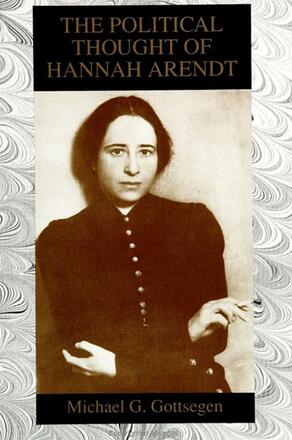
The Political Thought of Hannah Arendt
Alternative formats available from:
Description
By turns radical and conservative, Hannah Arendt's work confounds the usual categories and defies conventional expectations. This book provides a comprehensive analytical and developmental study of the whole of Arendt's mature political philosophy, focusing especially on the development of her works—The Human Condition, Between Past and Future, On Revolution, the Life of the Mind, and Lectures on Kant's Political Philosophy—and explores her contributions to democratic theory and to contemporary postmodern and neo-Kantian political philosophy.
Gottsegen argues that Arendt was primarily a theorist of political action, and that, at the heart of her thought, a new conception of political action emerges. And he shows how, to that end, Arendt endeavored to articulate in her major works a new conception of political action and participatory democracy that, together, might make politics a medium of human dignity, self-realization, and transcendence.
Michael G. Gottsegen is a former Assistant Professor of Political Science at Columbia University and Columbia University Presidential Fellow. He is presently at work on a study of postmodernism and liberalism.
Reviews
"The most impressive feature of Gottsegen's book is his success in identifying the conceptual and political logic that links Arendt's major works. His interpretation of Arendt's political thought represents a critical reconstruction of its strengths and weaknesses, not just a descriptive account of her major themes and difficulties. Rather than merely defend her against her critics, Gottsegen explores the ways in which Arendt herself grappled with the difficulties raised by her ideas.
"Numerous academic books and articles are starting to appear about Arendt. This book will rank among the best." — Bernard Yack, University of Wisconsin, Madison